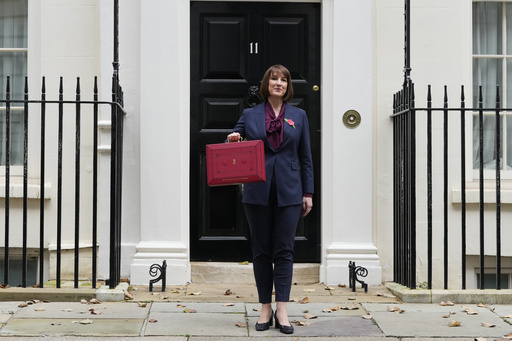LONDON — British Treasury chief Rachel Reeves is preparing to unveil a strategy later today aimed at consolidating numerous pension funds, with the goal of releasing tens of billions of pounds for investment and enhancing the United Kingdom’s sluggish economic growth.
According to insights shared by the Treasury prior to her address to financial leaders in London, Reeves is expected to characterize the establishment of “megafunds” as the “most significant pension overhaul in decades.”
During her inaugural Mansion House speech, a time-honored tradition for UK chancellors, Reeves will discuss how these reforms could potentially unlock up to 80 billion pounds (approximately $100 billion) for investments. Pension funds typically allocate resources across a spectrum of assets, such as stocks, bonds, real estate, and infrastructure, all in pursuit of increasing the retirement income for their members.
The initiative to merge 86 local authority pension funds in England and Wales draws inspiration from similar actions taken in countries like Australia and Canada, where larger pension funds have been successful in leveraging their size for improved asset investment and economic growth. Projections indicate that the new Local Government Pension Scheme in England and Wales could manage around 500 billion pounds in assets by the year 2030.
The newly elected Labour government is expected to implement these reforms through legislative measures introduced in Parliament next year. Initial feedback suggests a broad consensus across the political spectrum, as even the prior Conservative administration had suggested a similar approach, alongside support from within the pension sector.
Zoe Alexander, the director of policy and advocacy at the Pensions and Lifetime Savings Association, highlighted the potential benefits of larger pension schemes, stating that they can provide better outcomes for savers thanks to economies of scale, enhanced governance, improved negotiating power, and additional resources.
Business leaders have reacted cautiously to the proposed reforms, recognizing the need for the government to rebuild trust from the business community following Reeves’ recent budget, which included tax increases.
Louise Hellem, the chief economist at the Confederation of British Industry, noted, “With the budget adding extra financial burdens on companies and limiting their capacity to invest, the government must work diligently to restore the UK’s reputation as a conducive environment for businesses and communities to thrive.”
She further emphasized, “Pension schemes will prefer to function in a robust and flourishing UK economy.”
Since the global financial downturn of 2008-2009, the UK economy has consistently underperformed when compared to its historical growth rates. The government’s primary objective remains to stimulate economic growth, with forecasts expected to reveal minimal growth in the economy for the second quarter of the year.


